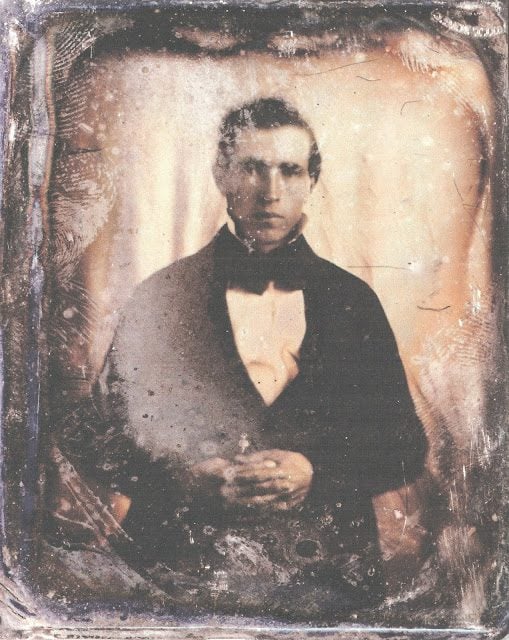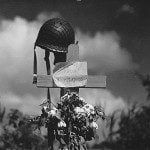
(Wikimedia Commons)
From an uncompleted manuscript:
The second president of the Church, Joseph Smith’s immediate successor, was Brigham Young. Recalling his own early experiences with Joseph Smith, he remarked,
Who can say aught against Joseph Smith? I do not think that a man lives upon the earth that knew him any better than I did, and I am bold to say that, Jesus Christ excepted, no better man ever lived or does live upon this earth. I feel like shouting Hallelujah all the time, when I think that I ever knew Joseph Smith, the Prophet.[1]
“It must weigh heavily in the balance of history,” remarks Richard Lloyd Anderson, “that Oliver Cowdery, later a discriminating and astute lawyer, lived a school term in the Smith home in Manchester in 1828-9 and defended the Prophet and his family as ‘industrious, honest, virtuous, and liberal to all.’”[2]
Frederic G. Mather, a professional writer and a non-Mormon, interviewed residents of Harmony, Pennsylvania, in about 1880 who still remembered Joseph Smith as “a good and kind neighbor.”[3] The Masonic grand master of the state of Illinois was surprised to find Joseph “hospitable, polite, well-informed and liberal. . . . Instead of the ignorant and tyrannical upstart, judge my surprise at finding him a sensible, intelligent companion and gentlemanly man. In frequent conversations with him he gave me every information that I desired, and appeared to be only pleased at being able to do so.”[4] An English traveler, recounting his visit to Nauvoo in 1843, reported that Joseph was “a kind, cheerful, sociable companion.”[5]
Testimonials to the good character of Joseph Smith abound.[6] The Prophet, recalled Jesse N. Smith, was
incomparably the most God-like man I ever saw. I know that by nature he was incapable of lying and deceitfulness, possessing the greatest kindness and nobility of character. I felt when in his presence that he could read me through and through. I know he was all that he claimed to be. [7]
“My first impression of the Prophet,” recalled Daniel Tyler, “was that he was a meek, humble, sociable, and very affable man. . . . My subsequent acquaintance with him more than confirmed my most favorable impressions in every particular.”[8] “As a son, he was nobility itself in love and honor of his parents,” remembered Benjamin F. Johnson. “As a brother he was loving and true even unto death. As a husband and father, his devotion to wives and children stopped only at idolatry.”[9] “The more extensive my acquaintance and experience became with him,” wrote William Holmes Walker in his diary, “the more my confidence in him increased.”[10]
[1] $Andrus and Andrus, They Knew the Prophet, 40.
[2] Anderson, “The Reliability of the Early History of Lucy and Joseph Smith,” 23, citing L.D.S. Messenger and Advocate 2 (1855), 200. [Check original.]
[3] Frederic G. Mather, “The Early Days of Mormonism,” Lippincott’s Magazine 26/152 (August 1880): 200-201.*
[4] Quoted in Cannon, Life of Joseph Smith the Prophet, 352.
[5] Quoted in Cannon, Life of Joseph Smith the Prophet, 355.
[6] See, in addition to the specific materials cited below, the comments of Bathsheba W. Smith ($Andrus and Andrus, They Knew the Prophet, 138), William Farrington Cahoon (ibid, 149), and . Compare the impression recorded by the non-Mormon Peter Hardeman Burnett, who served for a time as Joseph Smith’s lawyer and later as first American governor of California (ibid, 126).
[7] The Juvenile Instructor 27 (1 January 1892): 23-24.*
[8] $Andrus and Andrus, They Knew the Prophet, 55.
[9] Given in Dean R. Zimmerman, I Knew the Prophets: An Analysis of the Letter of Benjamin F. Johnson to George F. Gibbs, Reporting Doctrinal Views of Joseph Smith and Brigham Young (Bountiful: Horizon Publishers, 1976), 18.
[10] From the diary of William Holmes Walker, “Incidents, Travels, and Life of Elder William Holmes Walker, including His Immediate Association with Joseph Smith, the Prophet . . .,” 8, copied by Brigham Young University in 1961. In BYU Special Collections.*











